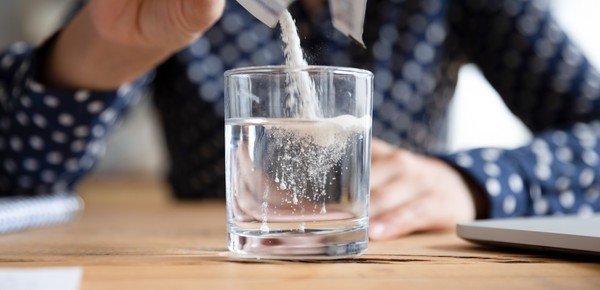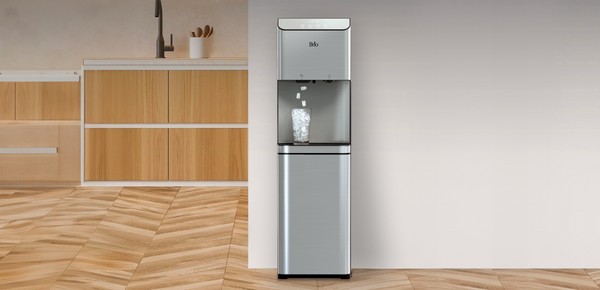Creatine and hydration are essential for muscle growth and performance; discover the ideal water intake with creatine at HOW.EDU.VN. Proper hydration ensures optimal creatine utilization, boosting workout effectiveness and overall health. Explore water intake strategies and maintain peak performance.
1. Understanding Creatine: Fueling Your Body
Creatine is a naturally occurring compound found predominantly in muscle cells, playing a critical role in energy production, especially during high-intensity activities. Essentially, it’s your body’s quick-access energy source for powerful movements like weightlifting and sprinting. Creatine supplementation increases the availability of adenosine triphosphate (ATP), the primary energy carrier in cells, which leads to enhanced muscle performance.
Creatine benefits a wide range of people.
- Athletes: Enhance performance in sports requiring bursts of energy.
- Bodybuilders: Support muscle growth and strength gains.
- Fitness Enthusiasts: Improve workout intensity and reduce fatigue.
- Older Adults: Help maintain muscle mass and cognitive function.
Creatine supports overall health, including cognitive function and heart health, making it a beneficial supplement for almost anyone.
2. The Multifaceted Benefits of Creatine Supplementation
Creatine supplementation offers numerous advantages for athletes and fitness aficionados, contributing to improved physical performance and overall well-being.
2.1. Boosted Muscle Strength and Power
Creatine has been proven to significantly increase muscle strength and power output. This allows individuals to lift heavier weights and perform more explosively, contributing to greater gains and improved performance. Studies published in the Journal of Strength and Conditioning Research have consistently shown that creatine supplementation, when combined with resistance training, leads to more substantial increases in strength compared to training alone.
2.2. Enhanced Exercise Performance
Creatine supplementation delays fatigue and improves performance in high-intensity, short-duration exercises by replenishing ATP stores in muscle cells. This means you can push harder for longer periods, maximizing your workout effectiveness. Research featured in the Journal of the International Society of Sports Nutrition confirms these benefits, particularly during activities like sprinting and weightlifting.
2.3. Promotes Muscle Growth and Facilitates Recovery
Creatine promotes muscle growth by boosting protein synthesis and reducing muscle damage post-exercise. This dual action aids faster recovery and enhances muscle development, allowing you to bounce back quicker and train more effectively. The European Journal of Applied Physiology has published studies supporting creatine’s role in muscle hypertrophy and repair.
2.4. Cognitive Function Improvement
Emerging research suggests creatine has cognitive benefits, improving memory and potentially reducing symptoms of brain injuries. While more research is needed, these findings are promising for overall brain health. A study in the journal Psychopharmacology found that creatine supplementation improved cognitive processing, especially in tasks requiring short-term memory and intelligence.
3. How to Incorporate Creatine Into Your Routine
Creatine is generally taken as a powder mixed with water or juice, though capsules and tablets are also available. Here’s how to effectively integrate creatine into your regimen.
3.1. The Loading Phase
The loading phase involves taking a higher dose of creatine to rapidly saturate your muscles. This typically means consuming about 20 grams of creatine daily, divided into smaller doses throughout the day, for approximately one week.
3.2. The Maintenance Phase
Following the loading phase, switch to a maintenance dose of 3-5 grams daily. This smaller dose maintains creatine saturation in your muscles over time, ensuring sustained benefits.
3.3. Timing Your Creatine Intake
Some prefer taking creatine before workouts for a performance boost, while others take it post-workout to aid recovery. Experiment to find what works best for your body and training schedule.
Crucial Hydration Tip: Always drink plenty of water when taking creatine to maximize its benefits and keep your body functioning optimally.
4. Optimizing Hydration with Creatine: The Perfect Balance
Creatine enhances muscle performance by increasing phosphocreatine stores, which rapidly produce ATP, the primary energy source for muscle contractions. This process draws water into muscle cells, improving muscle hydration and overall performance.
4.1. Exceeding the Eight-Glass Recommendation
Relying solely on the standard eight glasses of water may not suffice, especially when physically active or supplementing with creatine. Adjust your water intake based on your body weight and activity level.
4.2. Calculating Your Ideal Water Intake
A simple method is to drink half your body weight in ounces daily. For instance, a 150-pound individual should aim for 75 ounces (about 9.5 cups) of water.
4.3. Elevating Water Intake with Creatine and Exercise
If you’re using creatine, increase your daily water intake to at least 3-4 liters (12-16 cups), particularly if you are exercising. This ensures proper hydration and maximizes creatine’s effectiveness.
4.4. Replenishing Lost Fluids
Ensure you replace the water lost during workouts. Dehydration can diminish creatine’s effectiveness and lead to muscle fatigue. Prioritize consistent hydration to support all bodily functions and optimize creatine’s benefits.
5. Addressing Dehydration Concerns with Creatine
While creatine is generally safe when used as directed, dehydration remains a potential concern. Taking creatine with diuretics can exacerbate dehydration risks.
5.1. Recognizing the Symptoms of Dehydration
- Dark urine
- Dry mouth and increased thirst
- Fatigue and weakness
- Headaches
- Dizziness or lightheadedness
5.2. Minimizing Dehydration Risk
Prioritize hydration, monitor fluid intake, and adjust based on physical activity and creatine supplementation. Regular monitoring and proactive hydration strategies are key to avoiding dehydration.
6. Understanding Creatine and Water Retention
Creatine increases water retention within muscle cells, enhancing their size and strength. This is a beneficial effect, not bloating or puffiness.
6.1. Differentiating Water Retention Types
Creatine-related water retention occurs primarily within muscle cells, contributing to muscle volume and performance. This is different from subcutaneous water retention, which causes bloating.
6.2. Leveraging Water Retention Benefits
The increased water content in muscles supports better muscle function and appearance, contributing to enhanced performance and aesthetic gains.
7. Practical Strategies for Staying Hydrated
Staying adequately hydrated involves simple, consistent habits that ensure your body has enough fluids for optimal function.
7.1. Maintain Limitless Access to Water
After an intense home workout, having ready access to cold water can make a significant difference. Consider the Brio Moderna Ice Dispenser & Bottom Load Water Cooler.
7.2. Consistent Hydration Habits
- Carry a Reusable Water Bottle: Sip fluids regularly throughout the day.
- Monitor Urine Color: Aim for pale yellow to clear, indicating good hydration.
- Incorporate Hydrating Foods: Consume fruits and vegetables with high water content.
- Limit Dehydrating Beverages: Reduce intake of alcohol and caffeinated drinks.
- Adjust Fluid Intake: Increase water consumption based on activity level, temperature, and sweat rate.
8. Common Questions About Creatine and Hydration
8.1. Can creatine cause kidney problems?
When taken as directed, creatine is generally safe for healthy individuals. However, those with pre-existing kidney conditions should consult a healthcare professional.
8.2. How much water should I drink on workout days?
Increase your water intake by an additional liter or more on workout days, especially if you’re sweating heavily.
8.3. Is it possible to drink too much water while taking creatine?
Yes, excessive water intake can lead to hyponatremia (low sodium levels). Balance your fluid intake with electrolyte consumption.
8.4. Can I drink sports drinks instead of water?
Sports drinks can help replenish electrolytes, but water should be your primary source of hydration.
8.5. Does creatine cause bloating?
Some people experience initial water retention, but this is typically short-lived and occurs within muscle cells.
8.6. How do I know if I’m properly hydrated while taking creatine?
Monitor your urine color (pale yellow to clear) and pay attention to thirst levels.
8.7. Can I take creatine if I have high blood pressure?
Consult with a healthcare provider, as creatine may affect blood pressure in some individuals.
8.8. What are the best foods to stay hydrated?
Watermelon, cucumbers, strawberries, and spinach are excellent hydrating food choices.
8.9. Can I drink coffee or tea while taking creatine?
Limit caffeine intake, as it can have a diuretic effect and potentially lead to dehydration.
8.10. Should I adjust my water intake based on the climate?
Yes, increase your fluid intake in hot and humid climates to account for increased sweat loss.
9. The Expertise of HOW.EDU.VN: Your Path to Optimal Health
Incorporating creatine into your fitness routine offers significant benefits for muscle strength, power, and overall performance. Optimal hydration is crucial to maximize creatine’s effects and minimize the risk of dehydration.
At HOW.EDU.VN, we understand the complexities of integrating supplements into a healthy lifestyle. Our team of over 100 renowned PhDs is dedicated to providing expert guidance tailored to your individual needs. We are committed to helping you achieve your fitness goals safely and effectively.
Here’s how HOW.EDU.VN can help you:
| Area of Expertise | Expert Guidance |
|---|---|
| Hydration Strategies | Personalized hydration plans considering your body weight, activity level, and climate. |
| Supplement Timing | Expert recommendations on when to take creatine and other supplements for optimal performance and recovery. |
| Dehydration Risks | Monitoring for signs of dehydration and adjusting your intake to keep your body properly hydrated. |
| Nutritional Needs | Personalized nutrition plans to help you meet your dietary goals and support your overall wellness. |
| Workout Regimens | Expert advice on fitness regimens that maximize muscle growth and performance gains. |




10. Ready to Elevate Your Fitness Journey?
Navigating the world of fitness and supplementation can be challenging. Don’t leave your health and performance to chance. At HOW.EDU.VN, our team of PhD experts is here to provide you with personalized guidance and support.
Challenges Addressed
- Finding Qualified Experts: Access to over 100 renowned PhDs across various fields.
- High Costs and Time Investment: Efficient and cost-effective expert consultations.
- Information Security: Guaranteed confidentiality and reliable advice.
- Effective Communication: Guidance on clearly articulating your questions for the best support.
How HOW.EDU.VN Helps
- Direct Access to Experts: Connect with leading PhDs for personalized advice.
- Customized Solutions: Receive tailored strategies for your unique needs.
- Time and Cost Savings: Streamlined access to high-quality consultations.
- Confidentiality: Your information is secure and protected.
- Practical Advice: Implementable solutions for immediate impact.
Take the next step towards achieving your fitness goals. Contact us today to schedule a consultation with one of our leading experts. Let HOW.EDU.VN be your partner in achieving optimal health and performance.
Contact Information:
Address: 456 Expertise Plaza, Consult City, CA 90210, United States
WhatsApp: +1 (310) 555-1212
Website: how.edu.vn
Disclaimer: Always consult your physician or other qualified healthcare provider to determine the appropriateness of this information.